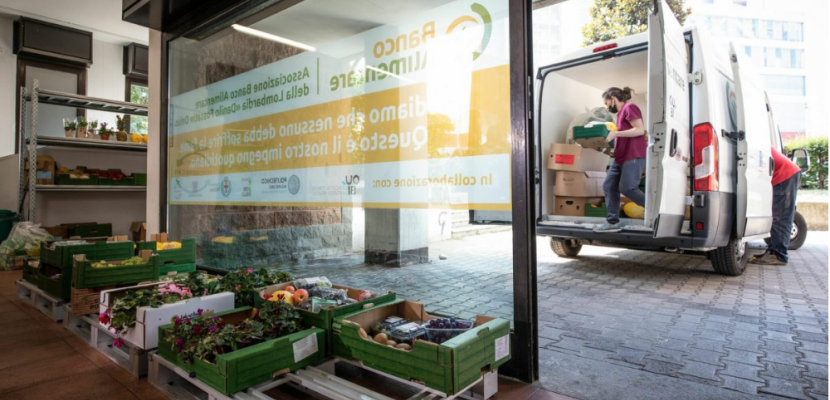
Local Food Waste Hub

About this good practice
In 2015, the Municipality of Milan adopted a comprehensive Food Policy with the overall objective of increasing the sustainability of its food system. Reducing food waste is one of the priorities of the Food Policy, with the goal of cutting food waste by 50% by 2030. The Municipality signed a joint agreement with Assolombarda and Politecnico di Milano to design innovative and participatory solutions to fight food waste. As a result, the first Local Food Waste Hub was launched, a pilot project that recovers food surpluses from local supermarkets and canteens with a logistic model developed by the university, gathers food in a neighbourhood space and redistributes it to people in need through local charities. The Municipality facilitate the identification of spaces (public or private), dedicated to stocking and redistribution to charities. Now, there are five active hubs serving five different districts within the city, while more are under development. This model allows to provide beneficiaries with a mixed offer of food, thanks to the intermediation of the hub, which recovers food from both supermarkets and canteens. Assolombarda also created a label dedicated to food donations to signal virtuous businesses.
Expert opinion
Resources needed
Average cost to launch a Local Food Waste Hub: 60.000 €
Staff required to manage the hub: 1 part-time employee, 2/3 volunteers
Staff from the Municipality, University, union, grantmaker, other partners to maintain the coordination of the initiative
Staff from supermarkets / canteens donating food
Evidence of success
With the Food Policy actions of recovery and donation of the food losses, the Municipality is able to estimate different economic co-benefits: the commercial value of food donation 30.000€/month and the money saving for the waste management.
The environmental co-benefits: GHG emissions equivalent 497 ton CO2e/month, water and land needed to produce the food that is saved.
The social co-benefits: each Local Food Waste Hub is able to donate a huge quantity of food, 10 tons/month.
Potential for learning or transfer
Local hubs are specifically designed to act on a local scale, facilitating synergies among actors within the same neighbourhood. The Milan Food Policy approach was based on the collaboration with the different neighbourhood boards to launch the hubs. One of the main added value of this initiative lays in the activation of a wide range of actors, public, private, social and research. The complex environment of actors is key in guaranteeing the long-term sustainability of the Hubs, and it is maximizing the visibility and knowledge transfer of the GP. Over the last 4 years, within the city of Milan, the model has been replicated in different locations and brought the number to 5 ongoing hubs. At the same time, few hubs were established in other cities in the same region thanks to the commitment of charities and food banks involved.
In addition, the Regional authority launched a tender to promote the opening of hubs, with a key role of municipalities in establishing such initiatives.
